Ever wondered what's in your wine? If you're looking for information beyond the hints of blackberry and suggested food pairings then I'm afraid you might be shocked by what could be hiding in your wine glass. Luckily there are healthier wine options available. Here's why you should choose clean, organic or biodynamic wine instead.
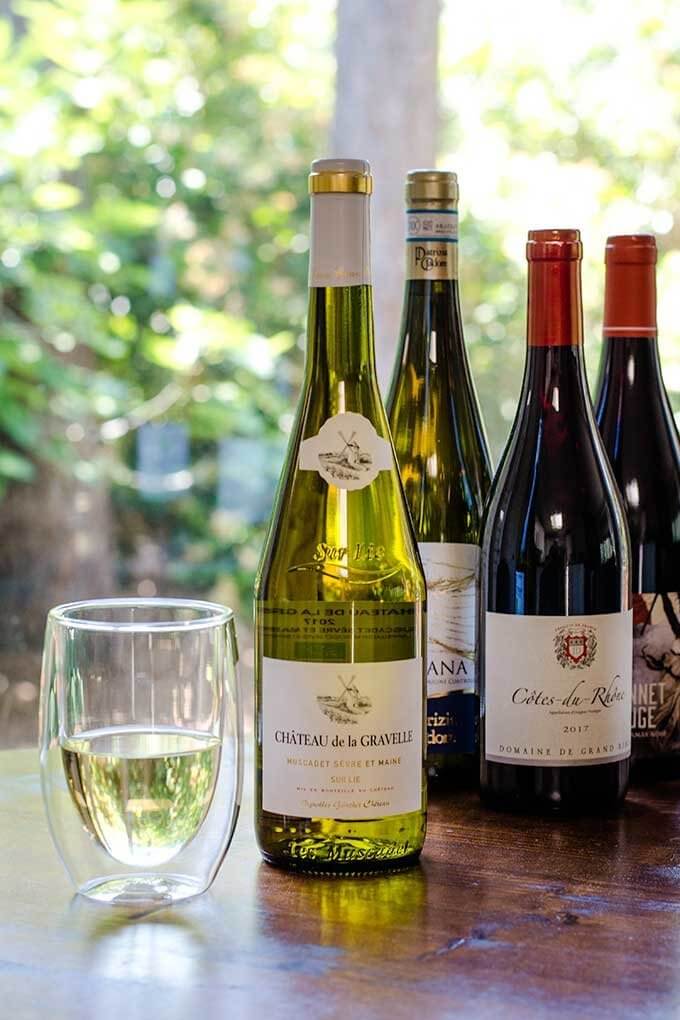
Want to Save This Post?
Enter your email & I'll send it to your inbox. Plus, get great new recipes from me every week!
Have you ever glanced at your favorite wines and wondered what's actually inside the bottle? According to the Alcohol and Tobacco Tax and Trade Bureau (TTB), nearly 60 chemicals can be added to your wine without any additional labeling required. Of course, so many store-bought wines also use ingredients like sugar and fake coloring.
We spend so much time thinking about what goes on our plates. But our wine glasses? That's a different story. Luckily, you'll find a delicious, clean alternative in organic and biodynamic wines.
And there's no need to sacrifice taste. Studies and data collected during blind tastings suggest that eco-certified wines win against their conventional wine competitors!
Here's what you need to know about natural, organic and biodynamic wines, understanding the labels used by wineries, and choosing the best organic or biodynamic wine for your table.
This post contains affiliate links for your convenience. Please read my disclosure for more info.
Natural vs. Organic vs. Biodynamic: What's the difference?
From seafood to grass-fed meats, you'll find a wide variety of labeling rules. So here's what you need to know about the most common labels for eco-friendly wine.
Natural Wine
The term 'natural' is unregulated, but it typically refers to the winemaking process, instead of the conditions surrounding planting, growing or harvesting. Because there is no standard or certification for natural wine, it really could mean anything.
Organic Wine
Organic wine labeling is regulated by both the National Organic Program (NOP) and the TTB so the term organic means the wine has met certain standards.
Organic wine labeling in the US has two levels:
- Organic: This designation means the wine meets all USDA organic regulations, no sulfites have been added (naturally occurring sulfites are allowed), and the label can use the USDA organic seal.
- Made with Organic Grapes: This designation means the grapes are grown on an organic farm. But it allows added sulfites up to 100 ppm (must be disclosed on the label) and some non-organic ingredients like yeast. This wine cannot use the USDA organic seal.
In the United States, organic farms are certified by the NOP. Their standards focus on creating goods without the use of pesticides, herbicides, and fertilizers.
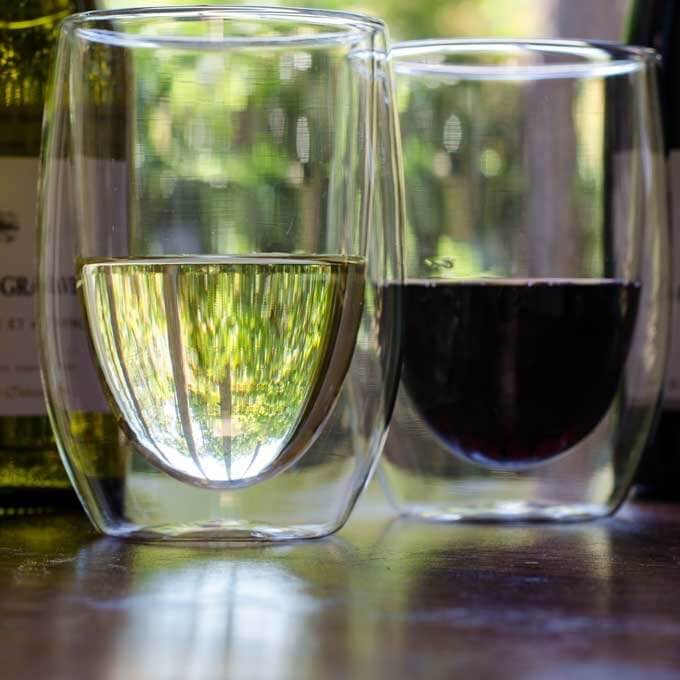
Biodynamic Wine
This term refers to grapes and wines made following the biodynamic farming rules. The practices in place require the farm to be self-sustaining and also protect their goods from unnecessary processing.
This label strictly regulated and also requires National Organic Program certification. Therefore biodynamic wines are also organic by default.
The label 'biodynamic' is managed and regulated by one certification group worldwide – Demeter. They've created specific standards for biodynamic farming and product processing. As a result, a winery must be certified in order to use the term 'biodynamic' to refer to itself, its growing or manufacturing practices, or its products.
And what's really interesting? While there are strict protocols and policies in place, they're all intended to create a farm with a more holistic approach to its animals and land. As a result, the unique features of each farm really shine in the products it produces.
What Biodynamic Winery Certification Requires
Here's a high-level look at some of the rules for vineyard certification:
- The vineyard must follow the Demeter Farm Standards for at least three years if switching from a regular farm model. At least one year is required if moving from an organic model.
- The whole vineyard must be certified. Demeter doesn't certify areas within a property.
- The vineyard must follow strict rules regarding the control of diseases, pests, and weeds. Natural, on-farm solutions are the first choice.
- They must also follow the policies for on-farm water conservation.
- Also, at least 10% of the total vineyard land must be set aside for biodiversity.
- Finally, each vineyard must also pass a yearly on-site check.
Why Choose Biodynamic Wine?
There are plenty of reasons for choosing this type of wine. For example, besides the built-in promise of organic, when you choose a biodynamic wine you are also choosing:
- A farming practice with one of the smallest carbon footprints in agriculture
- A product made by a vineyard that values safe, local and sustainable farming
- And a true taste of the original vineyard (also known as terroir)
Best of all, it's now easier than ever to find your perfect clean wine because there are now over 600 biodynamic wineries worldwide.
Labeling of Biodynamic Wines
Demeter's growing and processing standards require labels to fall into two distinct divisions:
- Biodynamic wine: Wine made with biodynamic grapes that also follows the Demeter Wine Processing Standard protocols.
- Made with biodynamic grapes: Wine made with biodynamically farmed grapes, but does not follow the Demeter Wine Processing Standard protocols.
That said, these two labels differ in a couple of key ways. But the biggest difference? A wine made with biodynamic grapes but is not a certified biodynamic wine means that the producer is allowed to make limited sugar adjustments. In contrast, a truly biodynamic wine has no sugar adjustments.
Where to Buy Organic and Biodynamic Wine
Whether it's grass-fed meats, sustainable seafood, keto snacks, or healthy pantry products, what's more convenient than groceries shipped directly to your front door?
But did you know you can also do the same thing with your wine?
I purchase my organic and biodynamic wines from Thrive Market. And since I'm already placing monthly orders for groceries, it's easy to add a half-case (or full!) whenever the wine rack is looking a little empty.
While not all of their wines are organic or biodynamic, Thrive Market has set rules for their clean wine collection. For example, a wine from the Thrive Market clean wine cellar:
- Is free of added sugar
- Undergoes very little fining and filtration
- Contains minimal sulfites
- Is free of oak chips and other added flavorings
- Skips flash pasteurization
- ...and (best of all) is also Master Sommelier approved!
And whether you're after a strictly biodynamic wine or want to give a regular organic wine a try, product filters make it easy to choose which wine is right for your table. You can sort by organic, no added sugar or sweeteners, pesticide-free, and biodynamic.
I don't know about you, but it's never that easy when I'm buying wine in the store!
Ready to start saving on your next wine rack stock up (...or grocery bill)? Click here for a free gift when you join Thrive Market!
Final Thoughts on Why I'll Be Buying Organic and Biodynamic Wine
We spend too much time thinking about the quality of our food to let the details escape us with the wine we put on the table. Whether it's white wine, red wine or rose, clean wines are a better choice that I'm excited to share with my friends and family.
I'm curious: have you tried a clean wine? If so, what did you think? Let me know in the comments below.



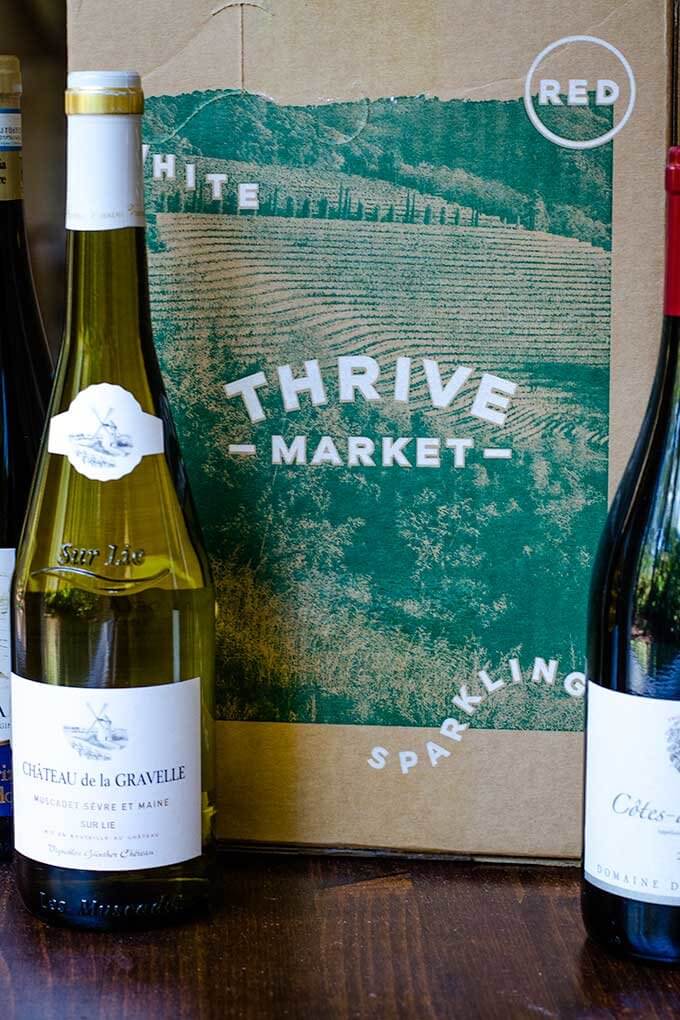
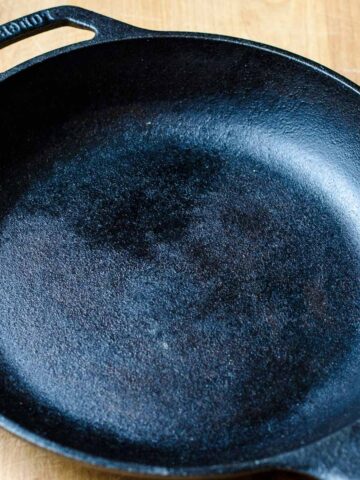
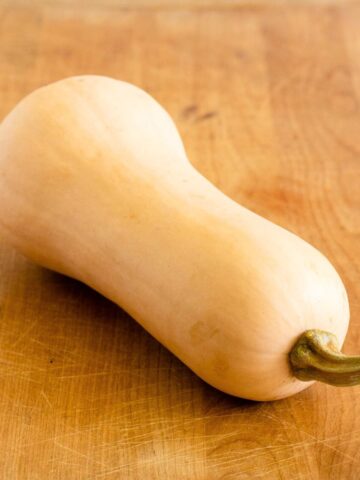
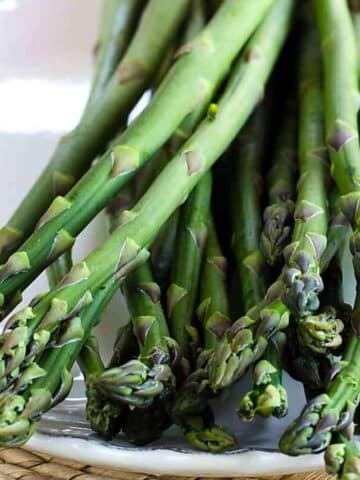
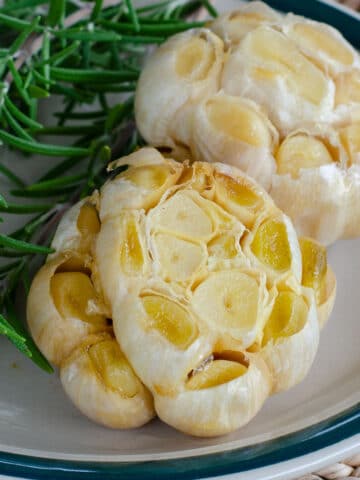
Leave a Reply